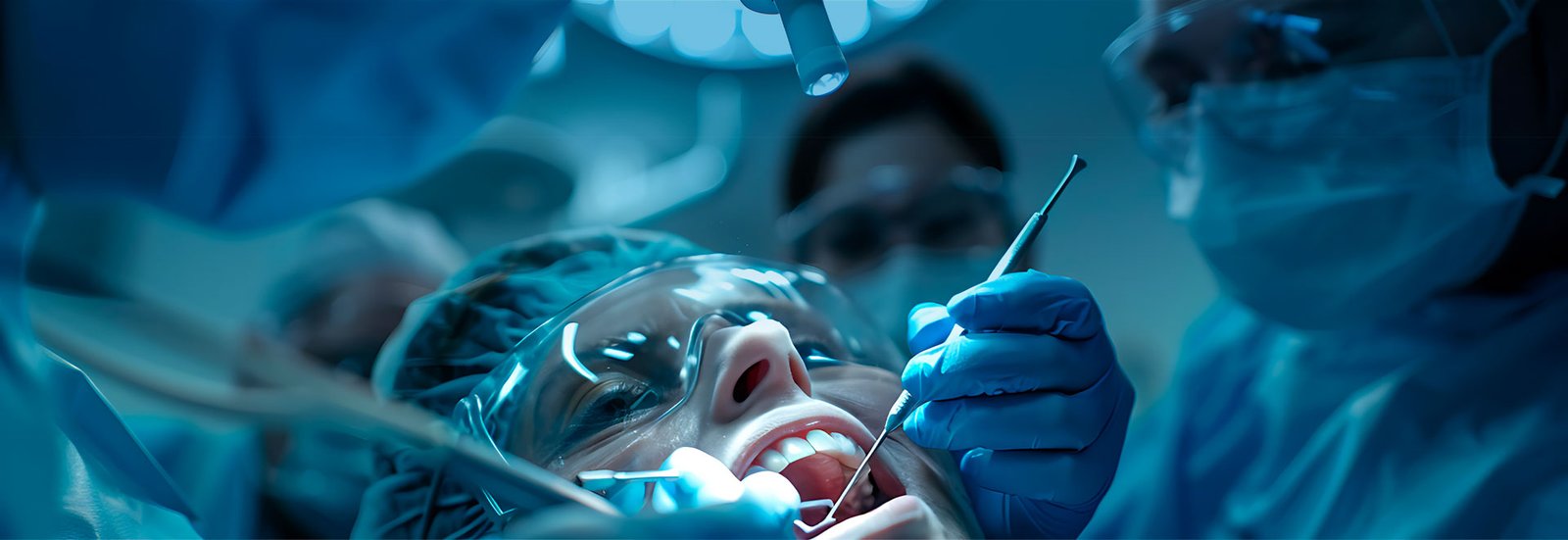
ORAL, DENTAL AND MAXILLOFACIAL SURGERY
Oral and maxillofacial surgery includes the treatment of pathologies such as cysts and tumors related to soft tissue and teeth ( apical resection ), the healing of tooth and jaw fractures, the removal or maintenance of teeth impacted in the jaw bone, and the correction of hard and soft tissues in the mouth to assist in the construction of prosthesis when necessary . Pain in the jaw – facial region, temporomandibular joint diseases and salivary gland disorders are also included in the scope of maxillofacial surgery. In addition, the detection and treatment of symptoms of some systemic diseases in the mouth are also considered within the scope of maxillofacial surgery .
placing implants in the jaw bone, applying bone grafts in cases where there is not enough bone for the implant, and membrane applications are also included in this field .
Another subject of maxillofacial surgery is congenital or acquired maxillofacial anomalies. Frequently seen cleft palate – lip and situations where chewing function and aesthetics are impaired due to the forward or backward positioning of the lower or upper jaw are among these anomalies .
In jaw surgery, disease diagnosis is supported by apical and panoramic X – rays as well as tomography. In this way, a definitive diagnosis can be made before the operation and a clear treatment plan can be made. In order to be successful during diagnosis and treatment, it may be necessary to work with a multidisciplinary approach together with other areas of dentistry such as orthodontics and prosthetics .
procedures related to oral, dental and jaw diseases are performed under local anesthesia ( regional numbing ). Before surgical procedures, patients ‘ existing systemic diseases and concerns about treatment should be taken into consideration first and the treatment plan should be determined according to these criteria .
Impacted 20 Year Old Teeth
It is a frequently encountered and generally worrying situation. However, thanks to the advanced techniques applied by our specialist doctors, these problems can usually be treated quickly, smoothly and successfully. Wisdom teeth are the last molars located at the very back of the jaw and usually appear between the ages of 18-24. However, they often appear late or remain completely impacted. Impacted wisdom teeth can cause complaints such as pain in the area, earache and difficulty opening the mouth . They can also rot or cause cysts to form in the surrounding area. Since they remain embedded, they are difficult to clean, which can lead to gum infections.
Impacted wisdom teeth are often a painful process and can take a long time to fully erupt. Painkillers, antibiotics, and gargling with warm salt water can often help relieve symptoms. However, sometimes these symptoms can reoccur. These teeth can often cause problems such as swelling, sensitivity, bad breath, and bad taste, but they do n’t always have to be problematic.